Books
Books
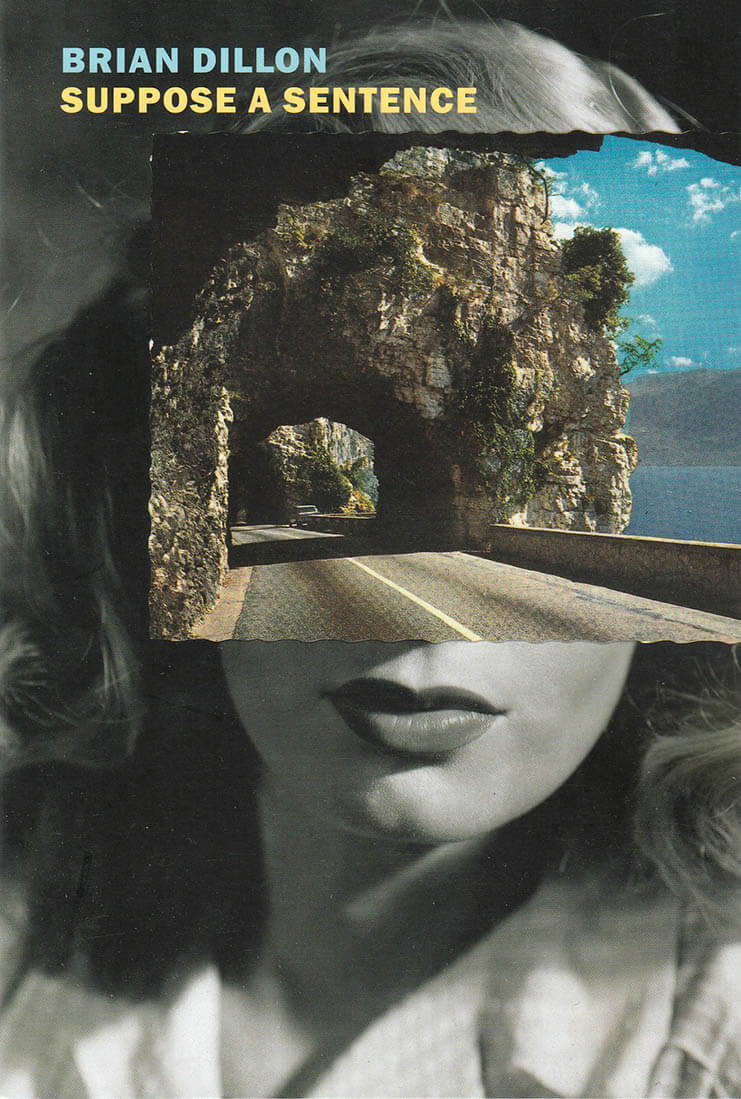
Suppose a Sentence
A captivating meditation on the power of the sentence by the author of Essayism, a 2018 New Yorker book of the year. In Suppose a Sentence, Brian Dillon, whom John Banville has called "a literary flâneur in the tradition of Baudelaire and Walter Benjamin," has written a sequel of sorts to Essayism, his roaming love letter to literature. In this new book Dillon turns his attention to the oblique and complex pleasures of the sentence. A series of essays prompted by a single sentence—from Shakespeare to Janet Malcolm, John Ruskin to Joan Didion—the book explores style, voice, and language, along with the subjectivity of reading. Both an exercise in practical criticism and a set of experiments or challenges, Suppose a Sentence is a polemical and personal reflection on the art of the sentence in literature. Whether the sentence in question is a rigorous expression of a state of vulnerability, extremity, even madness, or a carefully calibrated arrangement, Dillon examines not only how it works and why but also, in the course of the book, what the sentence once was, what it is today, and what it might become tomorrow.
Brian Dillon was born in Dublin in 1969. His books include The Great Explosion (short-listed for the Ondaatje Prize), Objects in This Mirror: Essays, I Am Sitting in a Room, Sanctuary, Tormented Hope: Nine Hypochondriac Lives, In the Dark Room, and with New York Review Books, Essayism. His writing has appeared in The Guardian, The New York Times, the London Review of Books, The Times Literary Supplement, Bookforum, Frieze, Artforum, 4Columns, and The Yale Review. He is the UK editor of Cabinet magazine and teaches creative writing at Queen Mary University of London.
Published 2020

The Woman Warrior: Memoirs of a Girlhood Among Ghosts
A classic memoir set during the Chinese revolution of the 1940s and inspired by folklore, providing a unique insight into the life of an immigrant in America. When we Chinese girls listened to the adults talking-story, we learned that we failed if we grew up to be but wives or slaves. We could be heroines, swordswomen. Throughout her childhood, Maxine Hong Kingston listened to her mother's mesmerizing tales of a China where girls are worthless, tradition is exalted and only a strong, wily woman can scratch her way upwards. Growing up in a changing America, surrounded by Chinese myth and memory, this is her story of two cultures and one trenchant, lyrical journey into womanhood. Complex and beautiful, angry and adoring, Maxine Hong Kingston's The Woman Warrior is a seminal piece of writing about emigration and identity. It won the National Book Critics Circle Award in 1976 and is widely hailed as a feminist classic.
Maxine Hong Kingston is the daughter of Chinese immigrants who operated a gambling house in the 1940s, when Maxine was born, and then a laundry where Kingston and her brothers and sisters toiled long hours. Kingston graduated with a bachelor’s degree in 1962 from the University of California at Berkeley, and, in the same year, married actor Earll Kingston, whom she had met in an English course. The couple has one son, Joseph, who was born in 1963. They were active in antiwar activities in Berkeley, but in 1967 the Kingstons headed for Japan to escape the increasing violence and drugs of the antiwar movement. They settled instead in Hawai‘i, where Kingston took various teaching posts. They returned to California seventeen years later, and Kingston resumed teaching writing at the University of California, Berkeley.
Published 1989
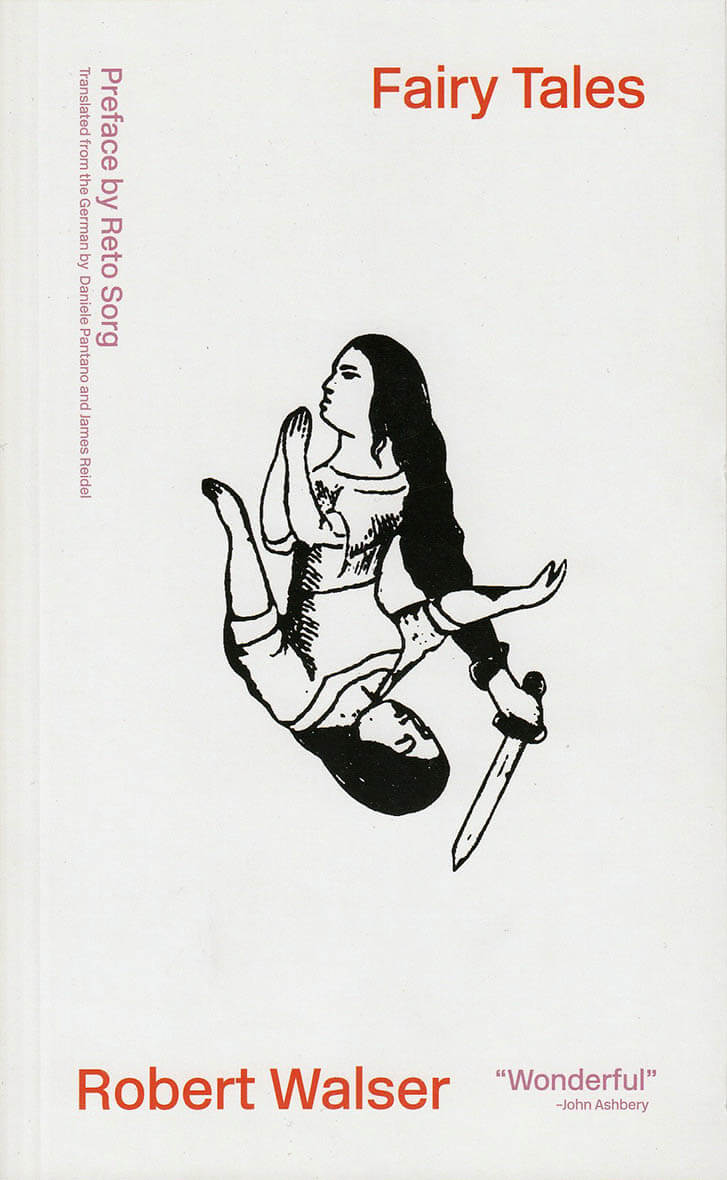
Fairy Tales: Dramolettes
Fairy Tales gathers the unconventional verse dramolettes of the Swiss writer Robert Walser. Narrated in Walser's inimitable, playful language, these theatrical pieces overturn traditional notions of the fairy tale, transforming the Brothers Grimm into metatheater, even metareflections.
Snow White forgives the evil queen for trying to kill her, Cinderella doubts her prince and enjoys being hated by her evil stepsisters; the Fairy Tale itself is a character who encourages her to stay within the confines of the story. Sleeping Beauty, the royal family, and its retainers are not happy about being woken from their sleep by an absurd, unpretentious, Walser-like hero. Mary and Joseph are taken aback by what lies in store for their baby Jesus.
Robert Walser (1878-1956) was born in Switzerland. He left school at fourteen and led a wandering and precarious existence working as a bank clerk, a butler in a castle, and an inventor's assistant while producing essays, stories, and novels. In 1933 he abandoned writing and entered a sanatorium—where he remained for the rest of his life. "I am not here to write," Walser said, "but to be mad."
Published 2015

A Bernadette Mayer Reader
A Bernadette Mayer Reader collects texts that were originally published in small press books and chapbooks, magazines, and anthologies. The book holds poetry and prose from Mayer’s earliest works to then-contemporary publications. From Story (1968), to excerpts from Desires of Mothers and Midwinter Day (1982), and including a cache of new poems, this is a sprawling, surprising collection of Mayer at her best.
The reader was met with praise from peers and critics alike. In the words of Jackson Mac Low, "[Mayer] never gets stuck in one place - she changes as the spirit moves her- and her structural inventions and self-revelations provoke surprise and delight."
Of the publication, Fanny Howe writes, "America could prove that her conscience, heart, and intelligence are still operating with this one volume of poetry."
Bernadette Mayer was born in Brooklyn, New York, in 1945. A most prolific poet, her first book was published at the age of twenty-three. Many texts later she continues to write progressive poetry from her home in East Nassau, New York. For many years Mayer lived and worked on the Lower East Side of Manhattan where she was the Director of St. Mark's Poetry Project from 1980-1984. Bernadette Mayer has received grants and awards from PEN American Center, The Foundation for Contemporary Performance Art, the NEA, The Academy of American Poets, and The American Academy of Arts and Letters.
Published 1992
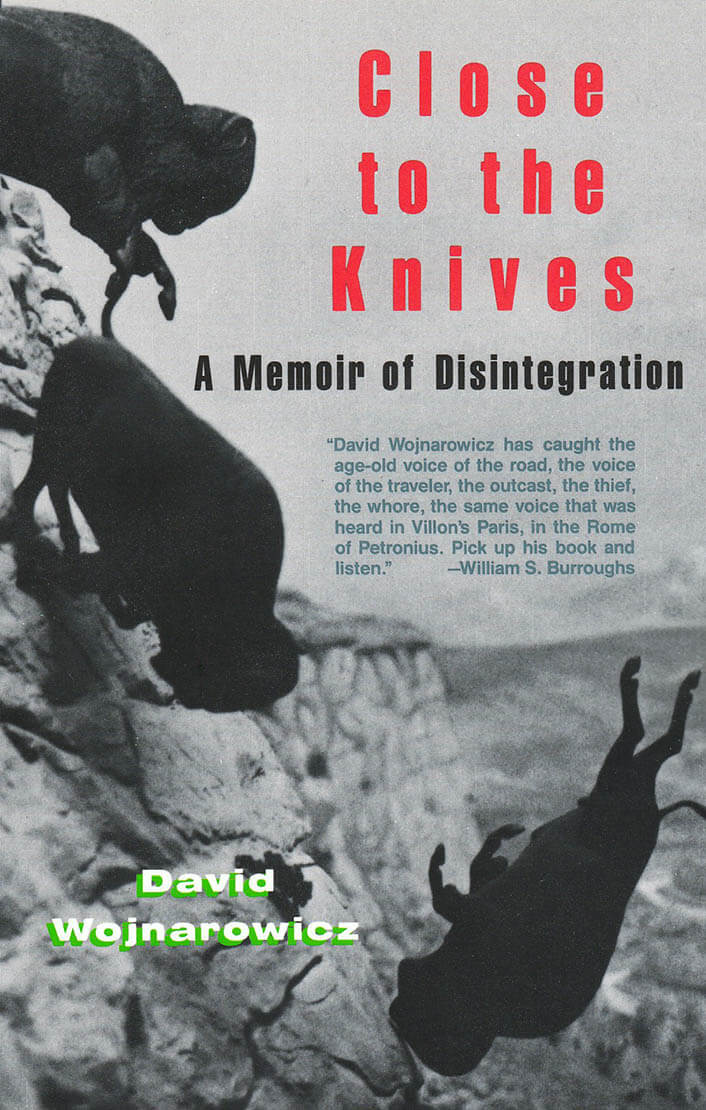
Close to The Knives
In Close to the Knives, David Wojnarowicz gives us an important and timely document: a collection of creative essays — a scathing, sexy, sublimely humorous and honest personal testimony to the "Fear of Diversity in America." From the author's violent childhood in suburbia to eventual homelessness on the streets and piers of New York City, to recognition as one of the most provocative artists of his generation — Close to the Knives is his powerful and iconoclastic memoir. Street life, drugs, art and nature, family, AIDS, politics, friendship and acceptance: Wojnarowicz challenges us to examine our lives — politically, socially, emotionally, and aesthetically.
David Wojnarowicz was an American painter, photographer, writer, filmmaker, performance artist, and AIDS activist prominent in the New York City art world. He was born on September 14, 1954. He died of AIDS on July 22, 1992.
published 1991
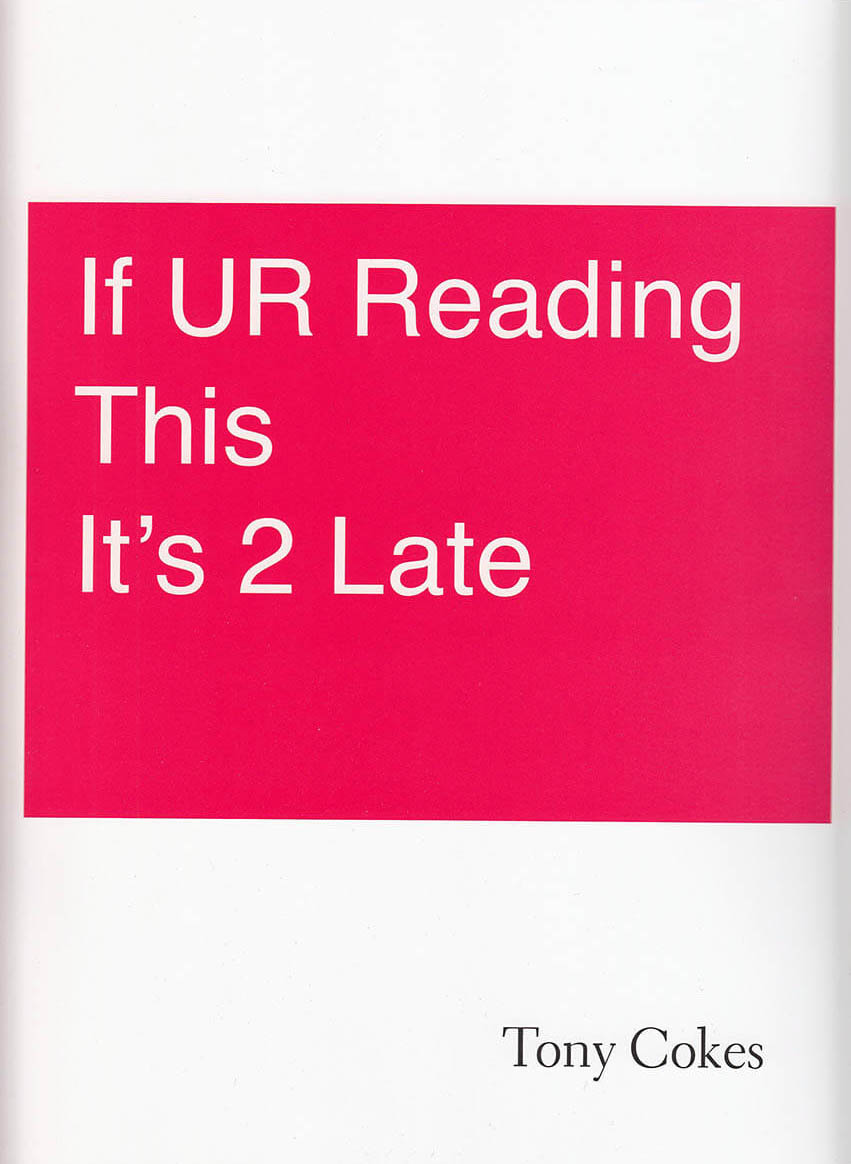
If UR Reading This It's 2 Late
The first monograph on the work of artist Tony Cokes, creating a visual cartography of a body of moving image work that spans twenty years.
Tony Cokes's video works are eviscerating critiques and affective art works, bringing together color theory, sound, music, and texts, and quoting a polyphony of voices including Aretha Franklin, Mark Fisher, David Bowie, Public Enemy, and Donald Trump. Combining political and social commentary with cultural theory and a critique of capitalism, Cokes's works viscerally confront the social condition, particularly the prejudices and threats suffered by black subjects. This book is the first monograph on his practice, creating a visual cartography of a body of work that spans twenty years.
It features four critical pathways into Cokes's decades-long practice, with essays contributed by notable academics, and conversations between Cokes and artist Kerry Tribe. Cokes's work deals with mediation and distribution, and the book itself becomes another conduit for the dissemination of theory, critique, and counter-narrative—a process that Cokes so powerfully engages in as an artist.
This book accompanies Cokes's solo exhibition, If UR Reading This It's 2 Late: Vol. 1–3, across three international art institutions: Goldsmiths Centre for Contemporary Art, London; Carpenter Center for the Visual Arts, Harvard University; and ARGOS centre for audiovisual arts, Brussels.
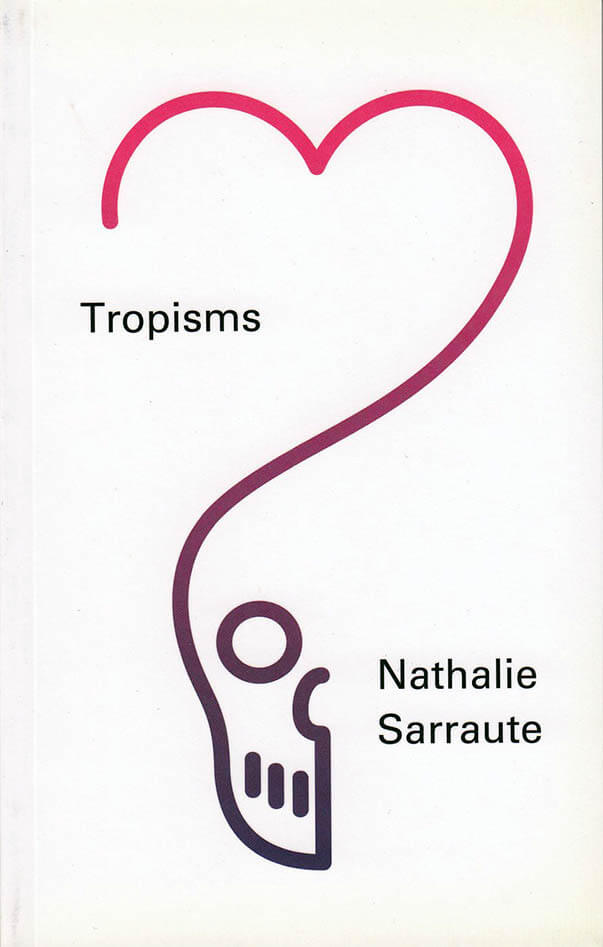
Tropisms
Nathalie Sarraute's Tropisms is considered one of the defining texts of the nouveau roman movement. Tropisms was championed as a masterpiece by Jean Genet, Marguerite Duras, and Jean-Paul Sartre, who hailed Sarraute as his favorite "anti-novelist." Sarraute defined her Tropisms as the "movements that are hidden under the commonplace, seemingly harmless instances of our everyday lives." Like figures in a grainy and shadowy photo, the characters in Tropisms are barely defined, the narrative never developed beyond a stressed moment. Instead, Sarraute brilliantly highlights the shift in tone through remarks or subtle details when a relationship changes, when we fall slightly deeper into or begin to emerge out of love or trust, or when something innocent tilts by the smallest degree toward suspicion.
Tropisms—something like 'prose poems'—as Sarraute calls them that— this is her form! Her texture is anti-novelistic, though she's decided to write 'novels' and launched an important critique of the novel on the basis of her method.—Susan Sontag
Translated by Maria Jolas.
Published 2015.
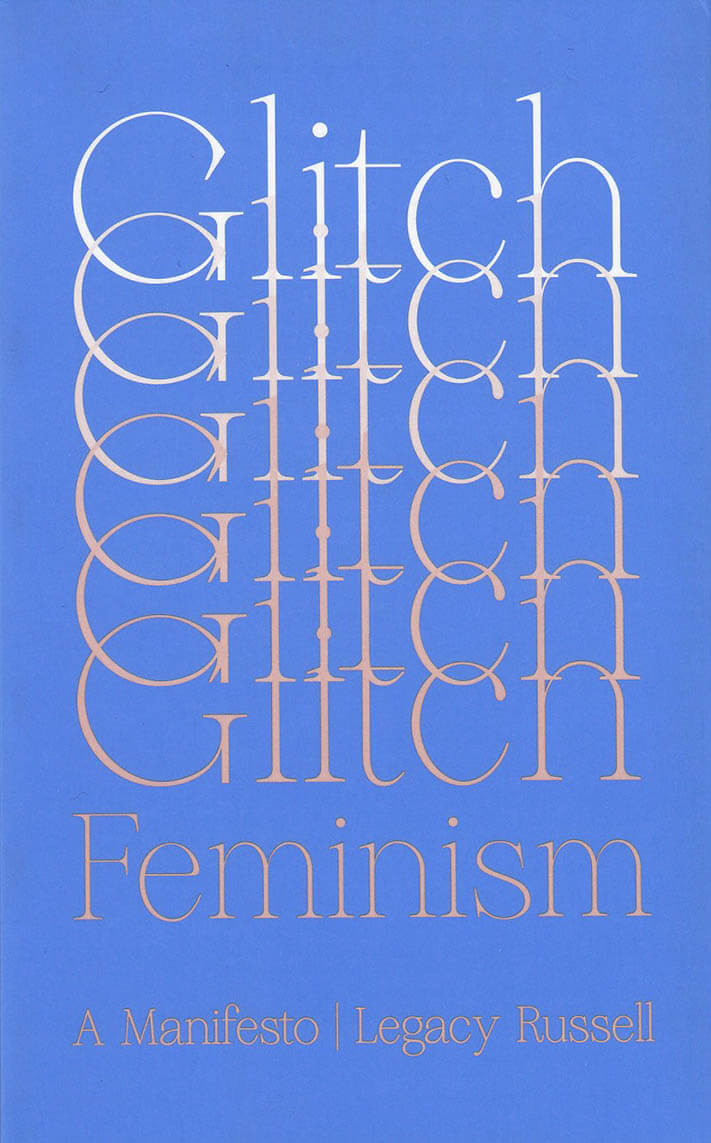
Glitch Feminism
A new manifesto for cyberfeminism.
The divide between the digital and the real world no longer exists: we are connected all the time. What must we do to work out who we are, and where we belong? How do we find the space to grow, unite and confront the systems of oppression? This conflict can be found in the fissures between the body, gender and identity. Too often, the glitch is considered a mistake, a faulty overlaying, a bug in the system; in contrast, Russell compels us to find liberation here. In a radical call to arms, Legacy Russell argues that we need to embrace the glitch in order to break down the binaries and limitations that define gender, race, sexuality.
Glitch Feminism is a vital new chapter in cyberfeminism, one that explores the relationship between gender, technology and identity. In an urgent manifesto, Russell reveals the many ways that the glitch performs and transforms: how it refuses, throws shade, ghosts, encrypt, mobilises and survives. Developing the argument through memoir, art and critical theory, Russell also looks at the work of contemporary artists who travel through the glitch in their work. Timely and provocative, Glitch Feminism shows how an error can be a revolution.
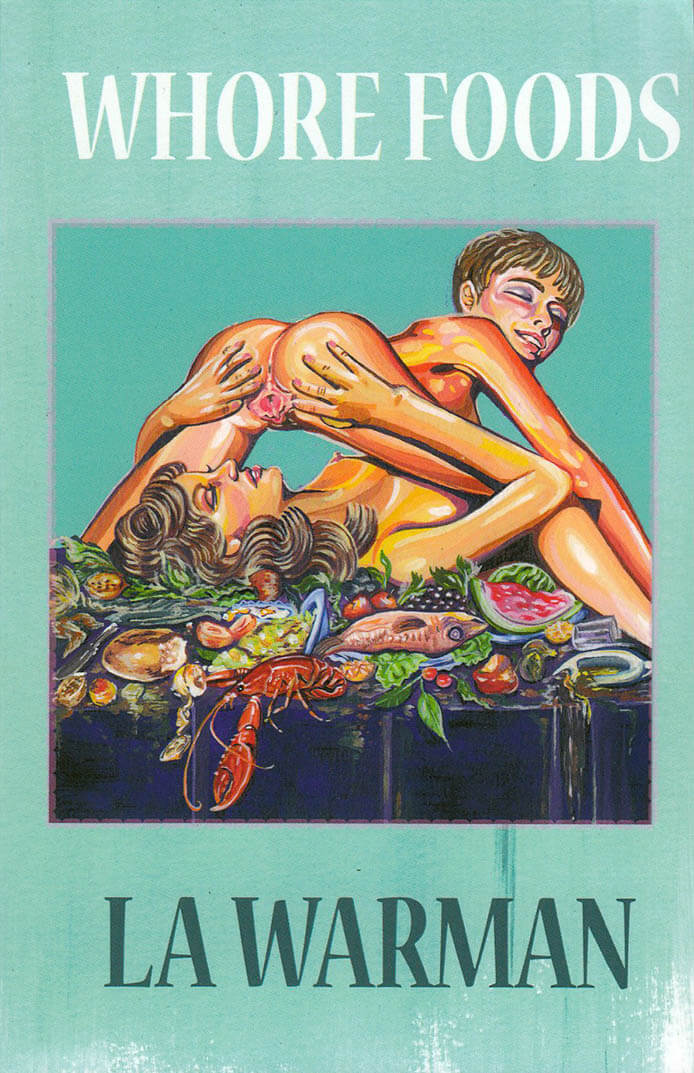
Whore Foods
Collecting and expanding pieces from her seminal newsletter detailing the inner and outer sexual life of a grocery store cashier, LA WARMAN'S WHORE FOODS is a guaranteed feast for sore thighs. Now available in raw pulp paperback form for the first time. Cleanup in Aisle 4.
"She made fun of the construction workers for not being white, for not knowing time like she knows time and I can’t say “That’s racist” because I am on the job. I am getting paid not to speak. I am getting paid to open up my body to you but not reveal it. The way I put my eyes down when you fight with your husband in line. To shit my pants only a little so you can’t see. The smell of watercress, pineapple, rice, and shit. She’s in my line again asking me if I eat ass.
Yes, sometimes.
Saw a good ass, saw a real good ass."
LA Warman is a poet and performer. She is the founder of GLASS PRESS, a publisher of art and poetry on flash drives. Warman has had work in shows at MOCA Cleveland, ICA Philadelphia, Time-Based Art Festival, General Public Collective, Flying Object, A.T.M. Gallery, and Open Engagement. Her chapbooks How to Become a Lesbian and THE CAVE THE CHURCH THE BEDROOM THE MALL were published by Inpatient Press and After Hours Ltd. Warman wrote and directed a 12 hour text and movement performance piece, Break, that premiered at Deli Gallery in 2018. She teaches Erotica classes online at LAWarman.com and in Brooklyn.
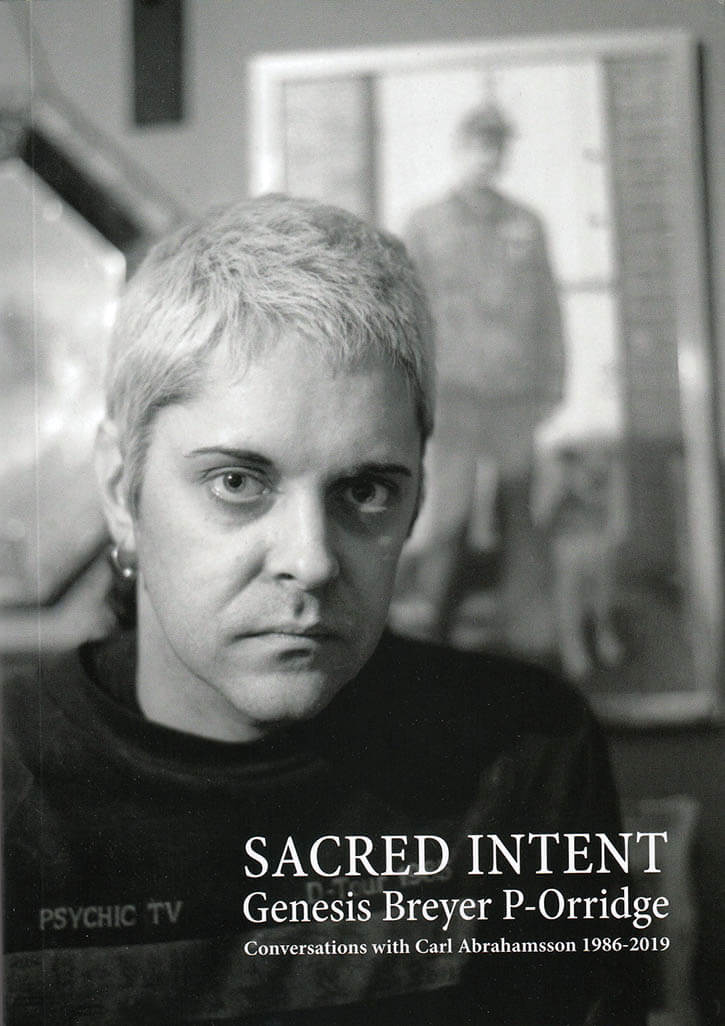
Sacred Intend
Published for legendary artist and musician Genesis Breyer P-Orridge’s 70th birthday in 2020, Sacred Intent gathers conversations between Breyer P-Orridge and his friend and collaborator, the Swedish author Carl Abrahamsson. From the first 1986 fanzine-based interview about current projects, philosophical insights, magical workings, international travels, art theory and gender revolutions, to 2019’s thoughts on life and death in the the shadow of battling leukaemia, Sacred Intent is a unique journey in which the art of conversation blooms to the highest degree.
With (in)famous projects like COUM Transmissions, Throbbing Gristle, Psychic TV, Thee Temple Ov Psychick Youth (TOPY) and Pandrogeny, Breyer P-Orridge has consistently thwarted preconceived ideas and transformed disciplines such as performance art, music, collage, poetry and social criticism, always cutting up the building blocks to dismantle control structures and authority. But underneath P-Orridge’s socially conscious and pathologically rebellious spirit, there has always been a devout respect for a holistic, spiritual, magical worldview―one of “sacred intent.”
Sacred Intent is a must read for anyone interested in contemporary art, deconstructed identity, gender evolution, magical philosophy and the responsibility artists may carry and contain within their work. The book not only celebrates an intimately deep friendship spanning over four decades, but also the work and ideas of an artist who has never ceased to amaze and provoke the status quo.
Also included are photographic portraits of Breyer P-Orridge taken by Carl Abrahamsson.
Published 2020.
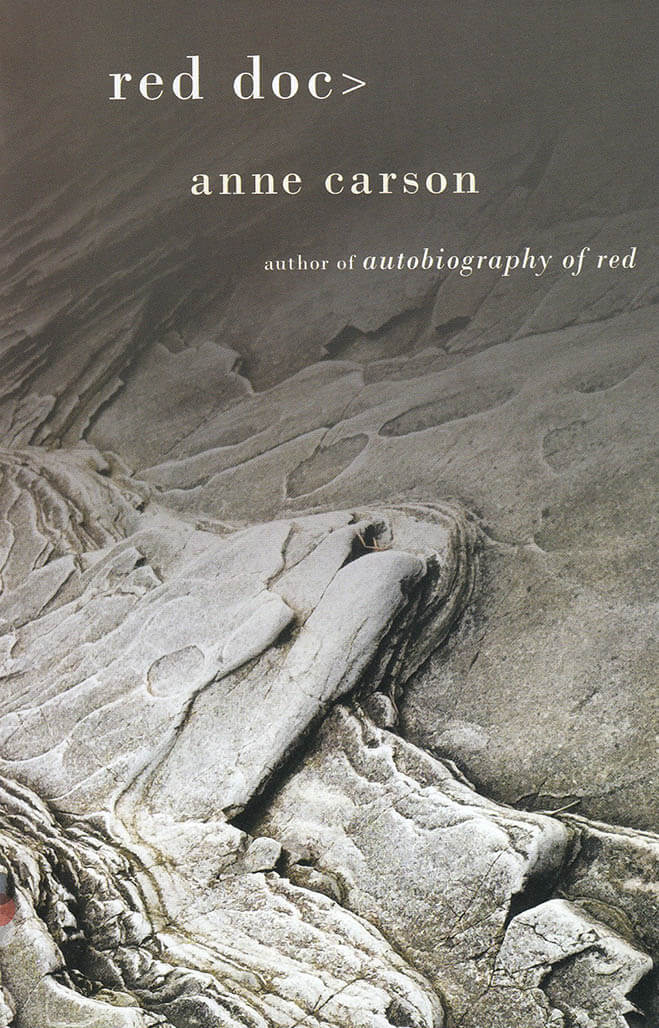
Red Doc
"Some years ago I wrote a book about a boy named Geryon who was red and had wings and fell in love with Herakles. Recently I began to wonder what happened to them in later life. Red Doc> continues their adventures in a very different style and with changed names. To live past the end of your myth is a perilous thing." Anne Carson
Anne Carson was born in Canada and has been a professor of Classics for over thirty years. Her awards and honors include the Lannan Award, the Pushcart Prize, the Griffin Trust Award for Excellence in Poetry, and fellowships from the Guggenheim and MacArthur Foundations.
Published 2014.
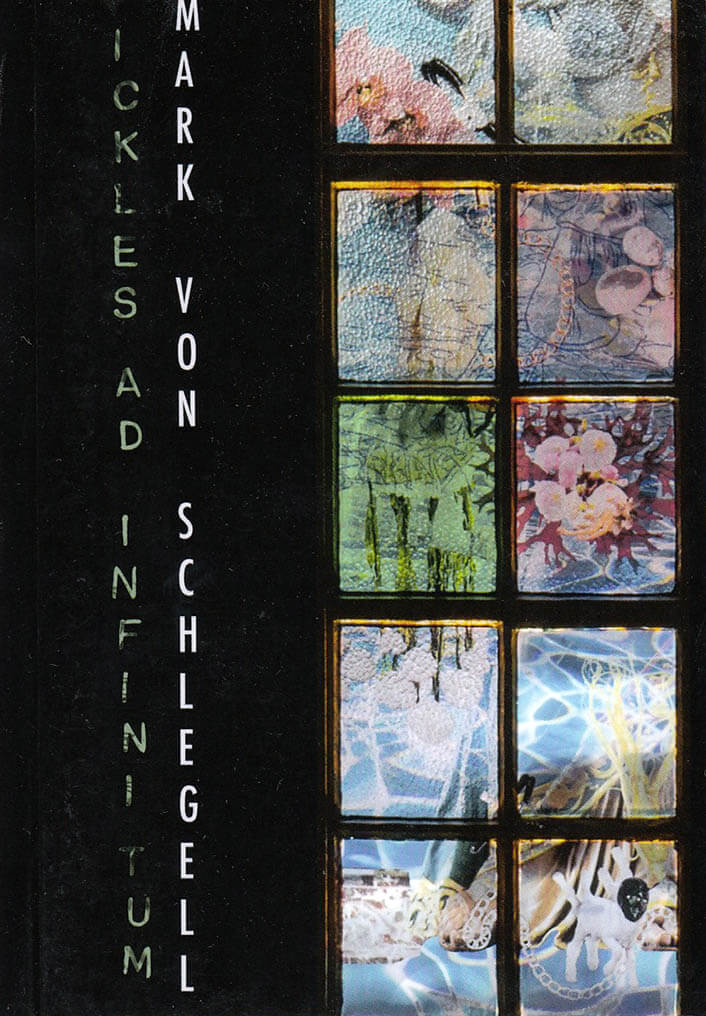
Ickles, Ad Infinitum
In the 2090s, Earth is somehow still here. Drones and clones are big business and Henries Ickles, debonair New Los Angeles infoarchitect, wants in on the action. Metaphysical theories are put into practice, invisible art is critiqued, quasicrystals are crafted, yogurt is spilled. From diplomatic misadventures with metallic herds in RealSweden to an underwater rendezvous in the free domes of MiamiVII, Ickles, ad Infinitum is a compendium of the exuberant and the abject, a refracted hologram of the absurdities of cultural production that swerves between incisive ode and knowing lampoon.
Mark von Schlegell has been pushing the envelope with independently-published experimental fiction and theory since the 1990s. He was born in New York, moved to L.A. in 2000, and currently lives in Cologne. His first novel, Venusia (Semiotext(e), 2005) was honor's listed for the Otherwise Award in Science Fiction.
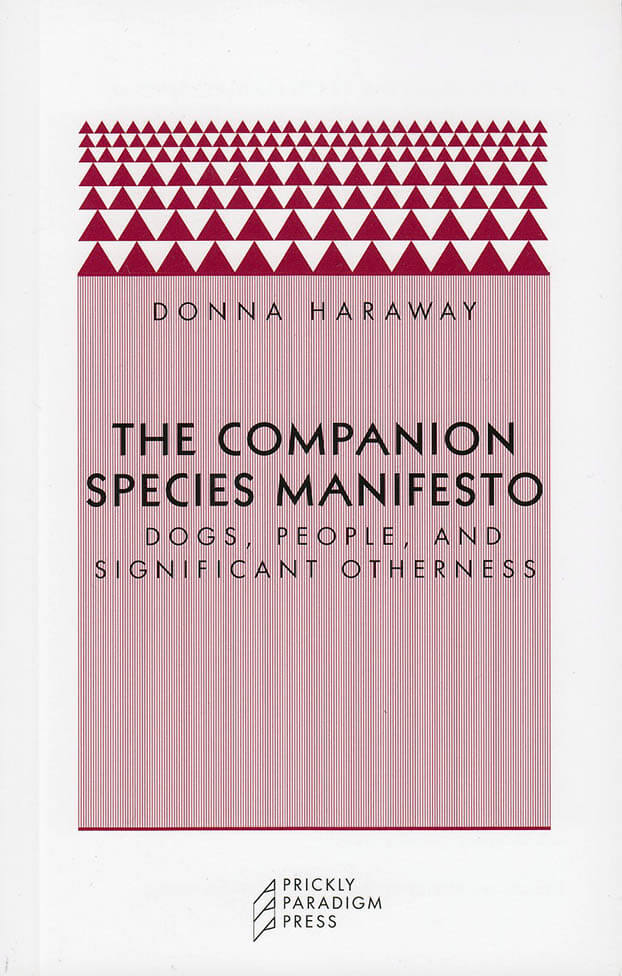
The Companion Species Manifesto
The Companion Species Manifesto is about the implosion of nature and culture in the joint lives of dogs and people, who are bonded in significant otherness. In all their historical complexity, Donna Haraway tells us, dogs matter. They are not just surrogates for theory, she says; they are not here just to think with. Neither are they just an alibi for other themes; dogs are fleshly material-semiotic presences in the body of technoscience. They are here to live with. Partners in the crime of human evolution, they are in the garden from the get-go, wily as Coyote. This pamphlet is Haraway's answer to her own Cyborg Manifesto, where the slogan for living on the edge of global war has to be not just cyborgs for earthly survival but also, in a more doggish idiom, shut up and train.
Donna Haraway is professor emerita in the History of Consciousness Department at the University of California, Santa Cruz.
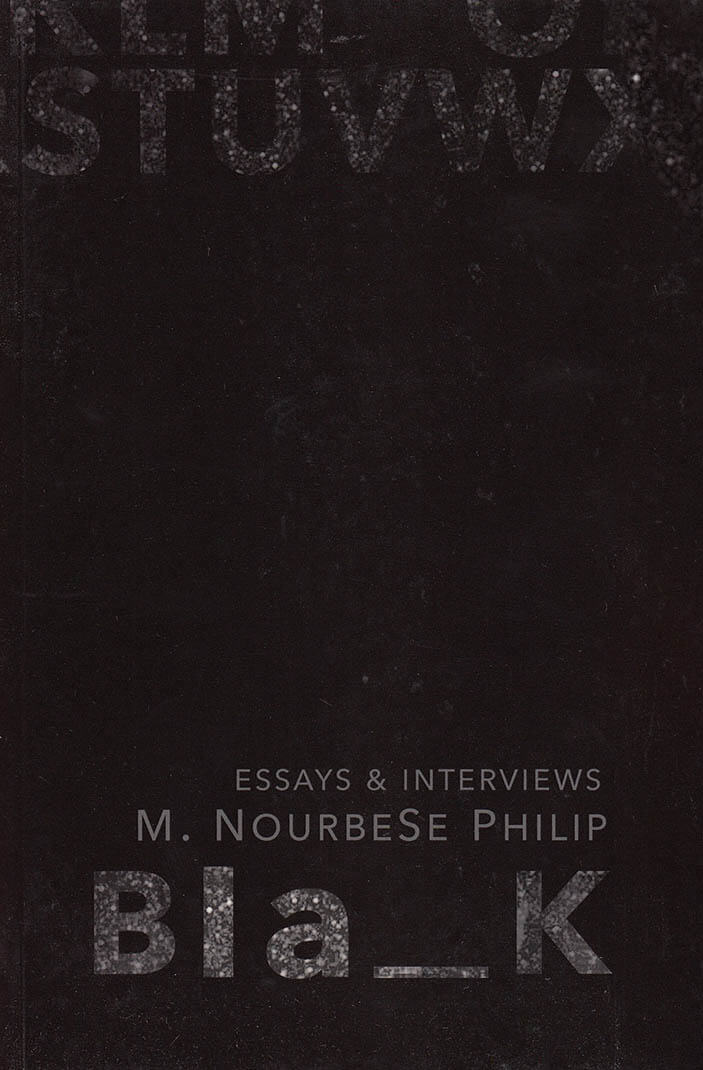
Bl_nk: essays and interviews
BLANK is a collection of previously out-of-print essays and new works by one of Canada's most important contemporary writers and thinkers. Through an engagement with her earlier work, M. NourbeSe Philip comes to realize the existence of a repetition in the world: the return of something that, while still present, has become unembedded from the world, disappeared. Her imperative becomes to make us see what has gone unseen, by writing memory upon the margin of history, in the shadow of empire and at the frontier of silence.
In heretical writings that work to make the disappeared perceptible, BLANK explores questions of race, the body politic,timeliness, recurrence, ongoingness, art, and the so-called multicultural nation. Through these considerations, Philip creates a linguistic form that registers the presence of what has seemingly dissolved, a form that also imprints the loss and the silence surrounding those disappearances in its very presence.
M. NourbeSe Philip is a poet, essayist, novelist, playwright, and former lawyer who lives in Toronto. She is a Fellow of the Guggenheim and Rockefeller (Bellagio) Foundations, and the MacDowell Colony. She is the recipient of many awards, including the Casa de las Americas prize (Cuba). Among her best-known works are: She Tries Her Tongue, Her Silence Softly Breaks, Looking for Livingstone: An Odyssey of Silence, and Zong!, a genre-breaking poem that engages with ideas of the law, history, and memory as they relate to the transatlantic slave trade.
published 2017
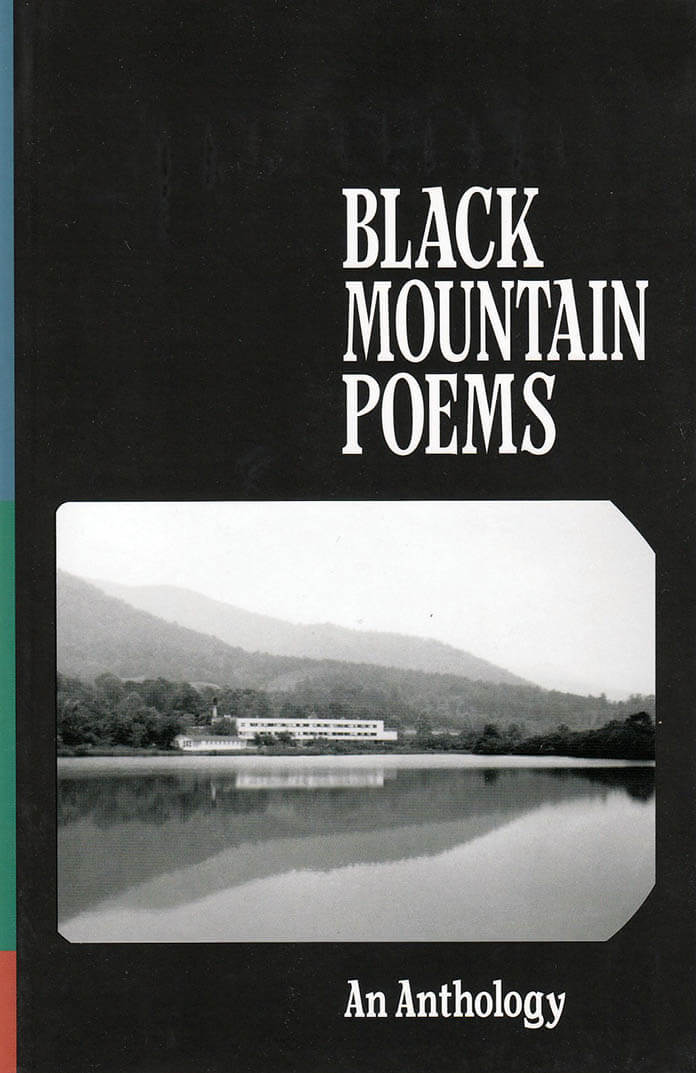
Black Mountain Poems
Black Mountain College had an explosive influence on American poetry, music, art, craft, dance, and thought; it's hard to imagine any other institution that was so utopian, rebellious, and experimental. Founded with the mission of creating rounded, complete people by balancing the arts and manual labor within a democratic, nonhierarchical structure, Black Mountain was a crucible of revolutionary literature. Although this artistic haven only existed from 1933 to 1956, Black Mountain helped inspire some of the most radical and significant midcentury American poets.
This anthology begins with the well-known Black Mountain Poets—Charles Olson, Robert Creeley, Robert Duncan, and Denise Levertov—but also includes the artist Josef Albers and the musician John Cage, as well as the often overlooked women associated with the college, M. C. Richards and Hilda Morley.
published 2019.

Axiomatic
How to speak of the searing, unpindownable power that the past-ours, our family's, our culture's-wields in the present? Drawing on nine years of research, Axiomatic explores the ways we understand the traumas we inherit and the systems that sustain them. In five sections-each one built on an axiom about how the past affects the present-Tumarkin weaves together true and intimate stories of a community dealing with the extended aftermath of a suicide, a grandmother's quest to kidnap her grandson to keep him safe, one community lawyer's struggle inside and against the criminal justice system, a larger-than-life Holocaust survivor, and the history of the author's longest friendship. With verve, wit, and critical dexterity, Tumarkin asks questions about loss, grief, and how our particular histories inform the people we become in the world.
Maria Tumarkin is a writer and cultural historian. A recipient of the Windham-Campbell Prize, she is the author of three previous books of ideas, Traumascapes, Courage, and Otherland, all of which received critical acclaim in Australia, where she lives. Her most recent work, Axiomatic, was a finalist for the National Book Critics Circle Award.
Published 2019.
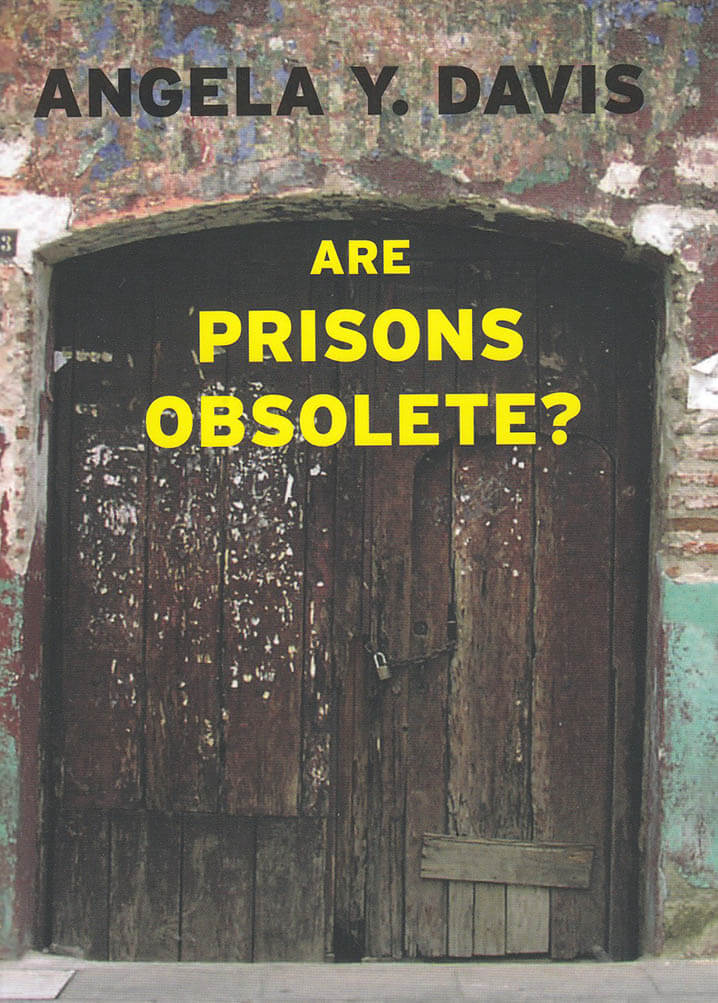
Are Prisons Obsolete?
With her characteristic brilliance, grace and radical audacity, Angela Y. Davis has put the case for the latest abolition movement in American life: the abolition of the prison. As she quite correctly notes, American life is replete with abolition movements, and when they were engaged in these struggles, their chances of success seemed almost unthinkable. For generations of Americans, the abolition of slavery was sheerest illusion. Similarly, the entrenched system of racial segregation seemed to last forever, and generations lived in the midst of the practice, with few predicting its passage from custom. The brutal, exploitative (dare one say lucrative?) convict-lease system that succeeded formal slavery reaped millions to southern jurisdictions (and untold miseries for tens of thousands of men, and women). Few predicted its passing from the American penal landscape. Davis expertly argues how social movements transformed these social, political and cultural institutions, and made such practices untenable.
In Are Prisons Obsolete?, Professor Davis seeks to illustrate that the time for the prison is approaching an end. She argues forthrightly for "decarceration", and argues for the transformation of the society as a whole.
Published 2003.
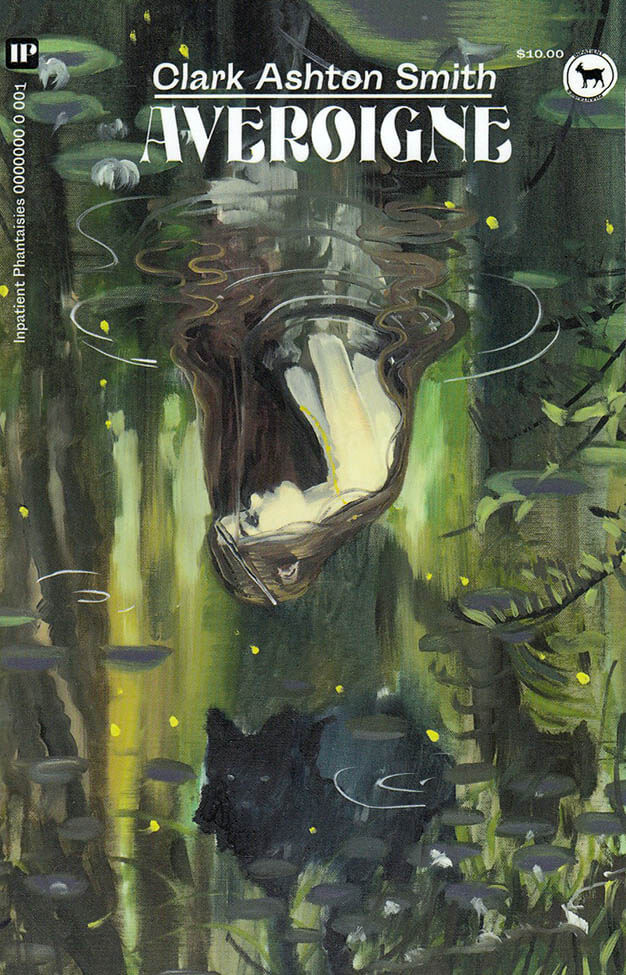
Averoigne
Finally collected in a signature single standalone edition, Clark Ashton Smith's Averoigne is a testament of temptation and transcendence: corrupt sellswords, vengeful sorceresses, and time-warping dissident priests all play a part in these tales set in the louche groves of Smith's decadent imagination.
Printed in the style of the erstwhile Ballantine Books Adult Fantasy Series, Averoigne concludes the iconic five-book cycle begun by editor Lin Carter in 1970 and left unfinished until now.
"No other world [of Smith's] feels so bound to actual human endeavors, to the concrete ruins of landscape and lore, to humanity groping toward a sense of itself. What Averoigne offers us is an affective history, a surrender of the imagination not to history’s facts, but to its ambience, its desires." - Kit Schlüter
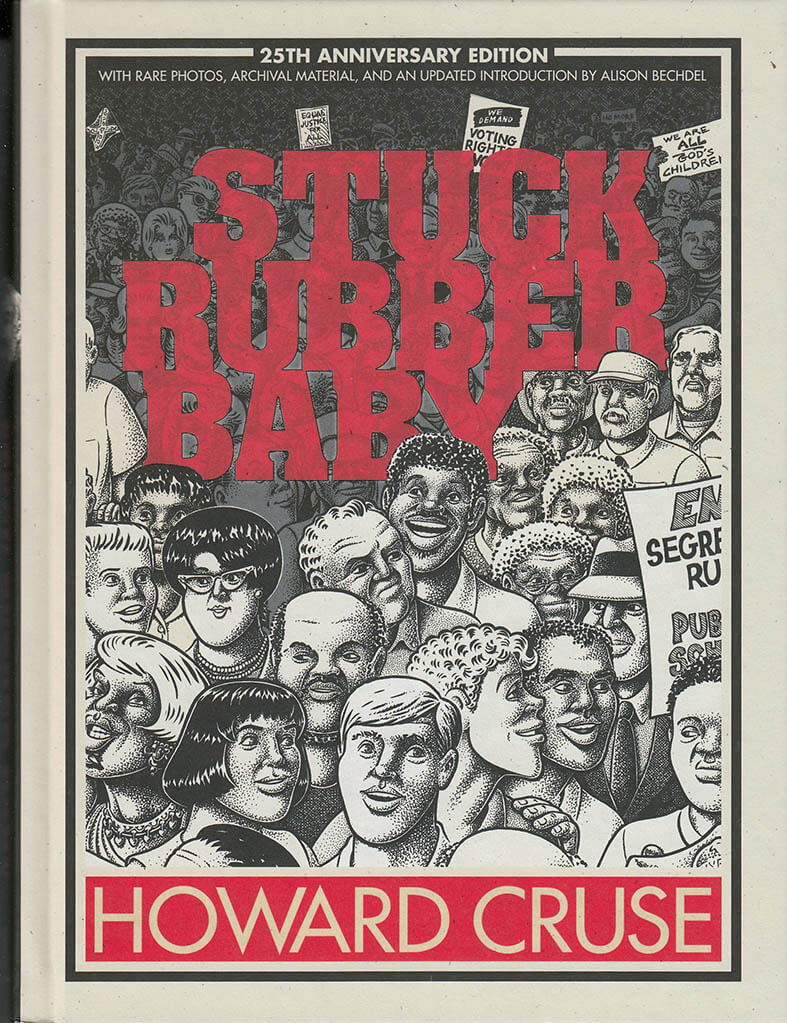
Stuck Rubber Baby
As a young gay man leading a closeted life in the 1960s American South, Toland Polk tries his best to keep a low profile, until he finds himself unexpectedly drawn to a lively community of civil rights activists, folk singers, and night club performers. Emboldened by his new friends, he joins local protests and even finds the courage to venture into a gay bar. No longer content to stay on the sidelines, Toland takes a stand against bigotry. But in Clayfield, Alabama, that can be dangerous—even deadly. Painstakingly researched and exquisitely illustrated, Stuck Rubber Baby is a groundbreaking graphic novel that draws on Howard Cruse's experience coming of age and coming out in 1960s Birmingham, Alabama. Just in time for its 25th anniversary, this rich and moving tale of identity and resistance is back in print—complete with unpublished archival material and a behind-the-scenes look at the author's creative process.
Howard Cruse's career as an underground cartoonist was launched during the 1970s, and in 1980 he served as the founding editor of the groundbreaking Gay Comix series. His comic strip Wendel was serialized in the Advocate through much of the 1980s. Stuck Rubber Baby, his most widely known work, was the winner of Eisner and Harvey Awards in the U.S. and (in translation) a Comics Critics Award in Spain, a Luchs Award in Germany, and a Prix de la critique at the International Comics Festival in Angoulême, France.
Published 2020.
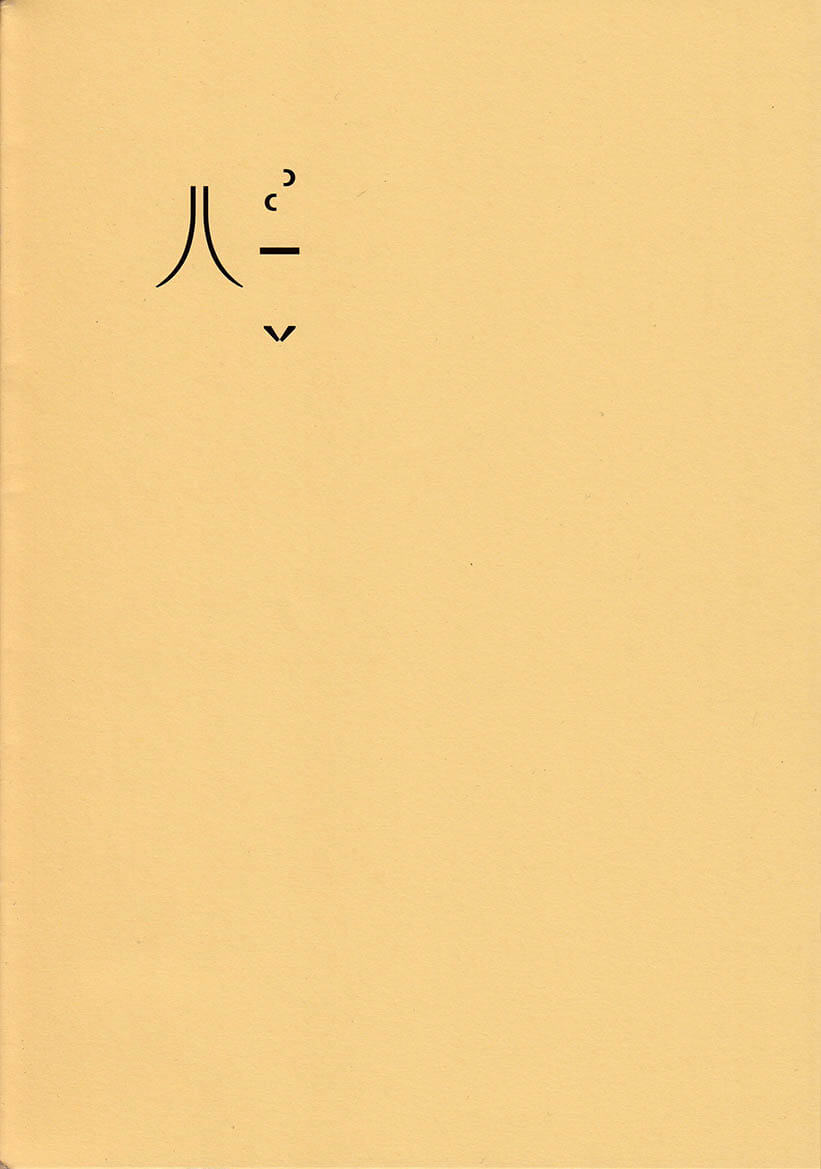
Backward Sway
This publication is part of Backward Sway | Upper Beam | Forward Swivel | Lower Bound - a site specific exhibition by Marie Raffn realized at Theatre Academy Helsinki in February 2019. The publication is a score of performative action developed in correspondence with the exhibition and the performance; Reading and Interpretation of - and inside - a spatial score by dancers Taru Miettinen and Aino Puhonen which took place during its opening days.

The Imaginary Republic
The Imaginary Republic is an artistic research project focusing on questions of social practice. In particular, it considers the creative and restless imaginaries underpinning our political selves and argues for a deeper engagement with what Elena Loizidou terms “dream-action”: the figurative and poetic staging of world making activity.
The publication brings together participating artists Tatiana Fiodorova, Octavio Camargo / Brandon LaBelle, the Sala-Manca Group, and Joulia Strauss, whose practices engage situations of struggle and autonomous cultures through a range of methods and approaches. From social fictioning to camouflaged interventions, collaborative pedagogies to gestures of care, their works propose unlikely paths of mutuality. The publication includes documentation of an exhibition held at Kunsthall 3,14 in Bergen, as well as key essays and works by theorists and artists Rhiannon Firth, Hélène Frichot, Marysia Lewandowska, Gerald Raunig, Raimar Stange with Oliver Ressler, and Manuela Zechner.
published in June 2020
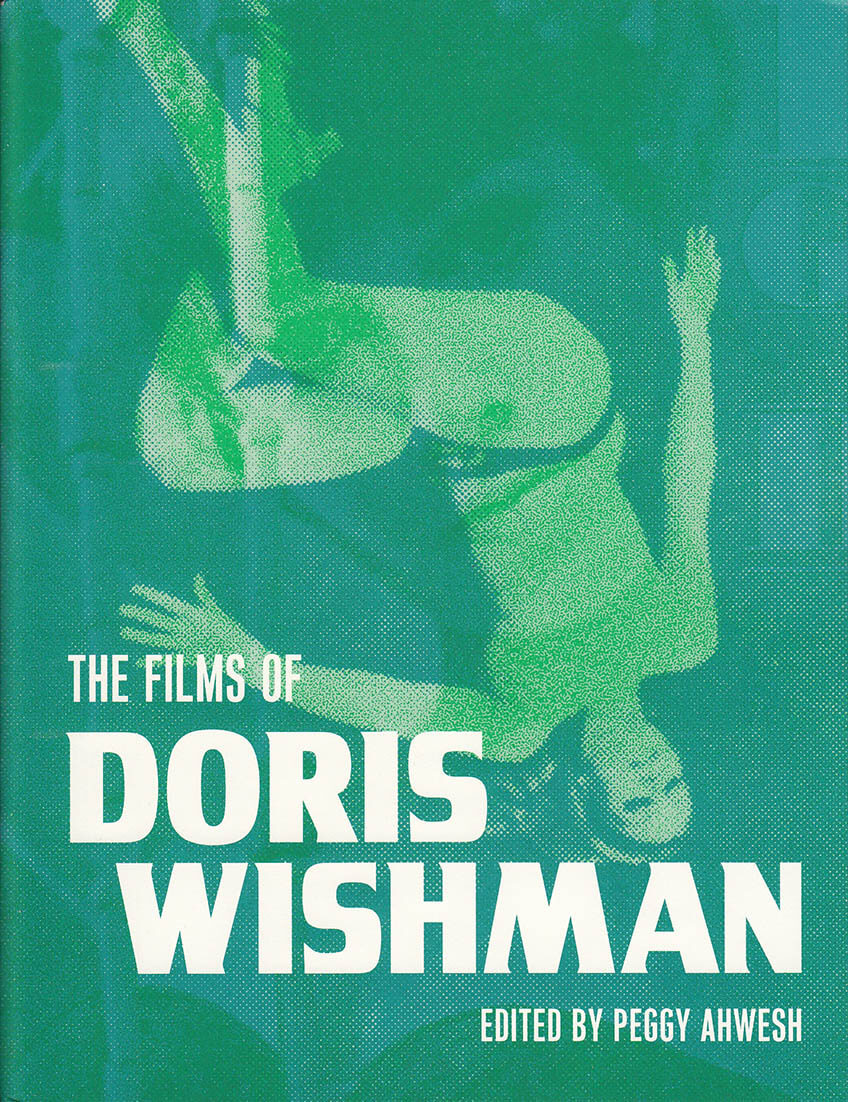
The Films of Doris Wishman
Some thirty years ago, the artist Peggy Ahwesh began to cultivate a fascination with the films of Doris Wishman, the prolific director behind grindhouse gems like Nude on the Moon (1961), Bad Girls Go to Hell (1965), and Let Me Die a Woman (1977), among many others. By that time, a number of Wishman titles had been released by VHS label Something Weird, and she had been profiled by Andrea Juno in the RE/Search compendium Incredibly Strange Films, granting her a small but fervent cult following. In the early ’90s, Ahwesh heard from musician Tom Smith that the elusive auteur was working at a sex shop in Florida. Determined to meet the doyenne of the skin flick in the flesh, Ahwesh flew down from New York with fellow filmmaker M.M. Serra in 1994 to surprise Wishman at the Pink Pussycat Boutique in Coconut Grove, Miami.
The fruits of this encounter would go into the making of The Films of Doris Wishman, a one-issue zine produced by Ahwesh in 1995, featuring collages drawn from Wishman ephemera given to Ahwesh in Florida, and writings on Wishman by Blossom Lefcourt, programmer Joel Shepard, filmmaker Keith Sanborn, and Ahwesh herself. “The films,” Ahwesh notes “offer the prerequisite weirdness of the genre, but they have a seedy underlying resonance of the fear of and hostility toward women in our world, which Doris describes in her own profound and tawdry way.”
Inpatient Press and Light Industry's new publication includes a complete facsimile of the original zine—long unavailable—as well as the heretofore unpublished transcript of Ahwesh, Serra, and Smith’s 1994 video interview with Wishman at the Pink Pussycat, plus a brief essay on Wishman by Ahwesh, which first appeared in the Village Voice. Experimental cinema and exploitation pictures would seem to exist at opposite ends of film's outer reaches, but every so often, as with Ahwesh and Wishman, their stars align.
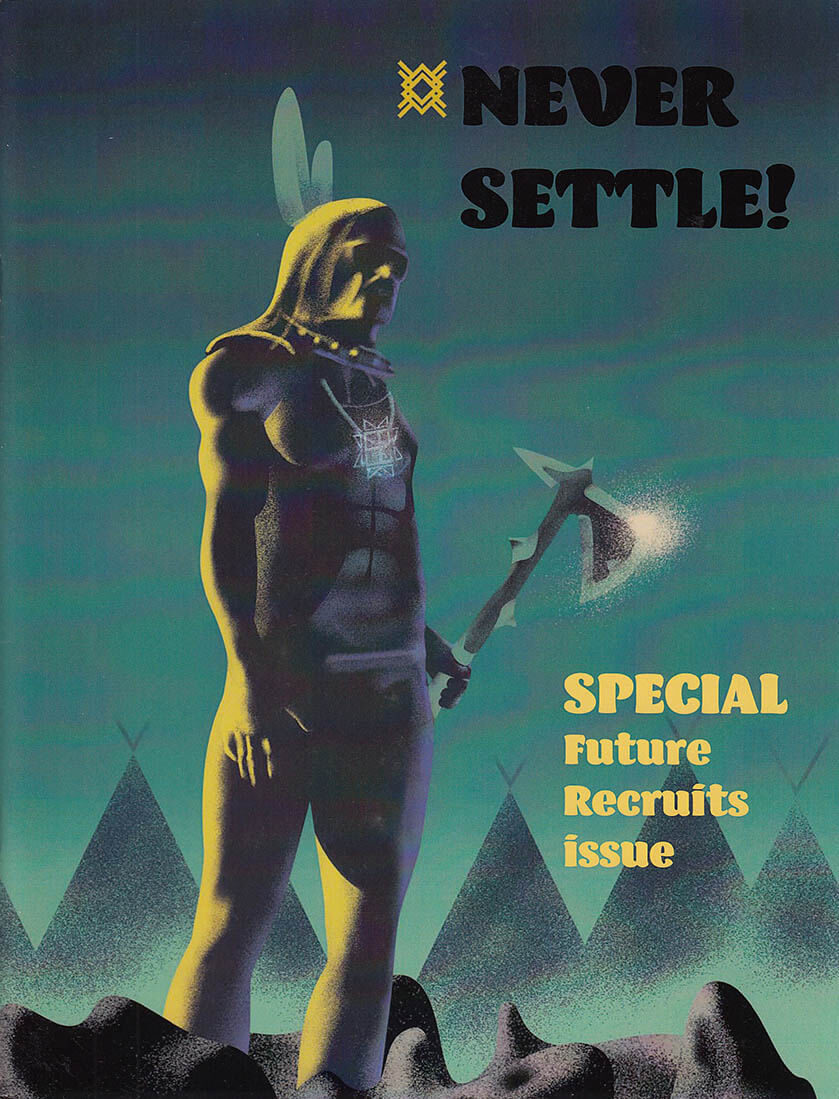
NEVER SETTLE
NEVER SETTLE! is an activity booklet for minds young and old who are curious about the exciting growing field of SAVAGE PHILOSOPHY. Prepare for a career as an accomplice in the New Red Order with fun games, puzzles, and plenty of brain teasers . NEVER SETTLE! will get you ready to capture culture and commit crimes against reality.
NEVER SETTLE! is an ongoing, collaborative educational effort between Inpatient Press and filmmakers Adam and Zack Khalil.
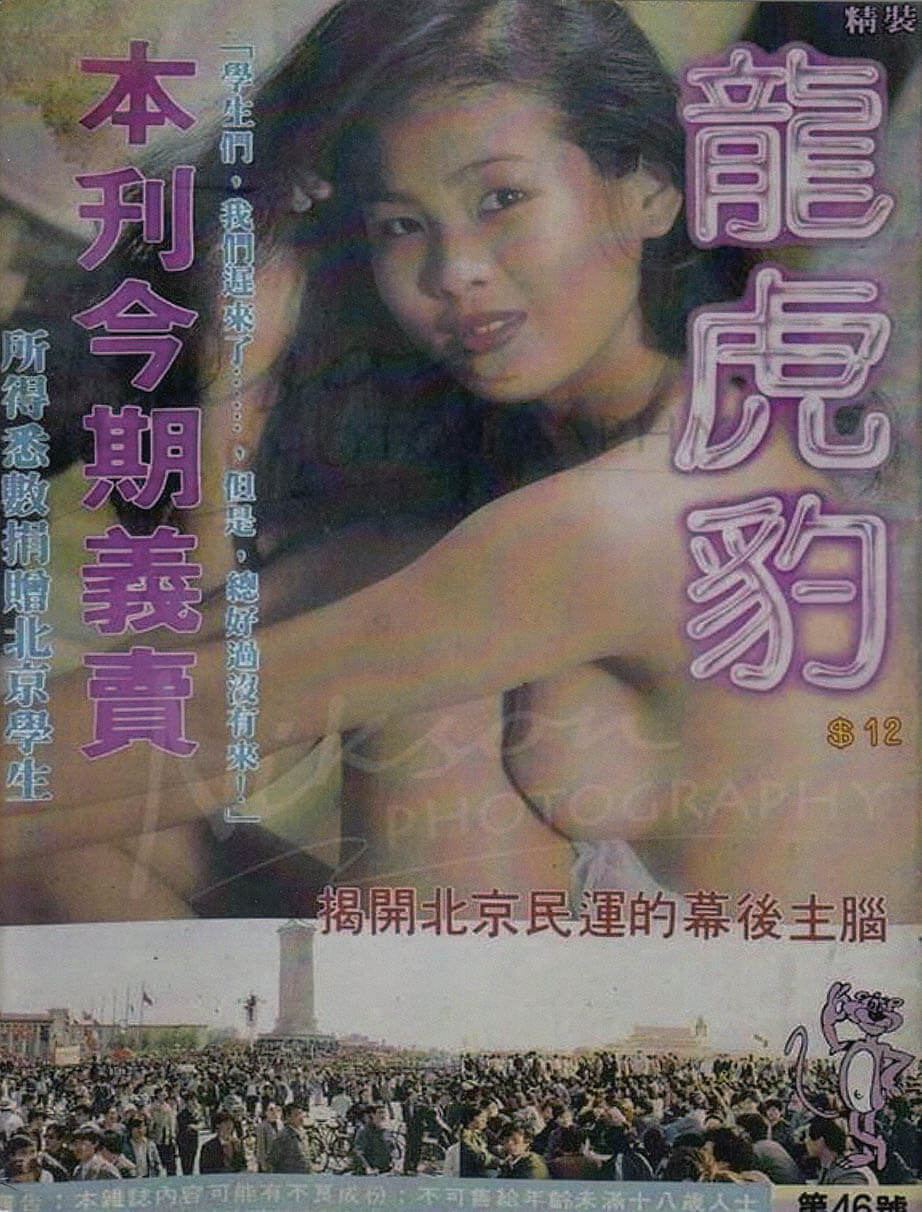
(Salty Wet)
咸濕 (Salty Wet) - an anti-travelogue essay on distance and desire within and without Hong Kong
“There is no Hong Kong anymore.” These four words have been on the lips of my colleagues, friends and family. Even if you have never been, every Chinatown is a facsimile of Hong Kong. The city’s specter also lives in pop culture, movies and cantopop and video games, and in these projections, we live its simulacrum. In history, dead cities have their morbid enigma and mythology from Pompeii to Rome. But if I could find coherence in living through political decay, outside of the frameworks of news journalism or historiography, then perhaps I would be able to find a more human way to mourn Hong Kong."
T▇▇ 謝▇ is an independent film producer based between Hong Kong and New York and the founder of Speculative Place. She was the Executive Producer of Adam Khalil and Bayley Sweitzer’s feature debut film Empty Metal, and the forthcoming documentary film, Ancestors in the Archives, directed by Adam and Zack Khalil. 謝 is pronounced SHä (as in Shanghainese).